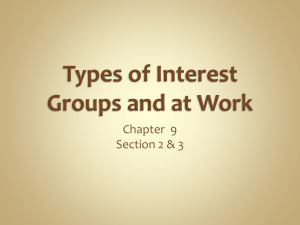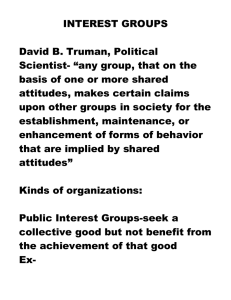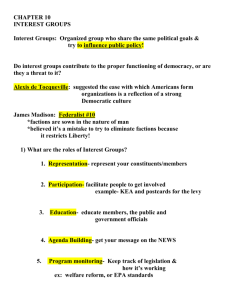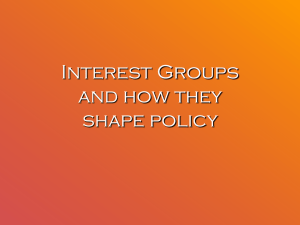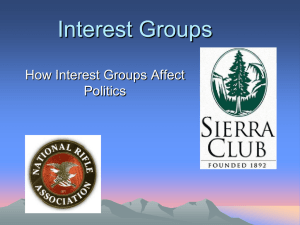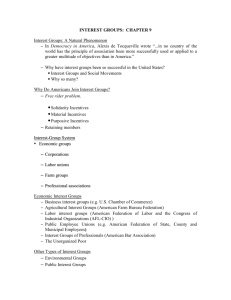Interest Groups and Lobbyists
advertisement
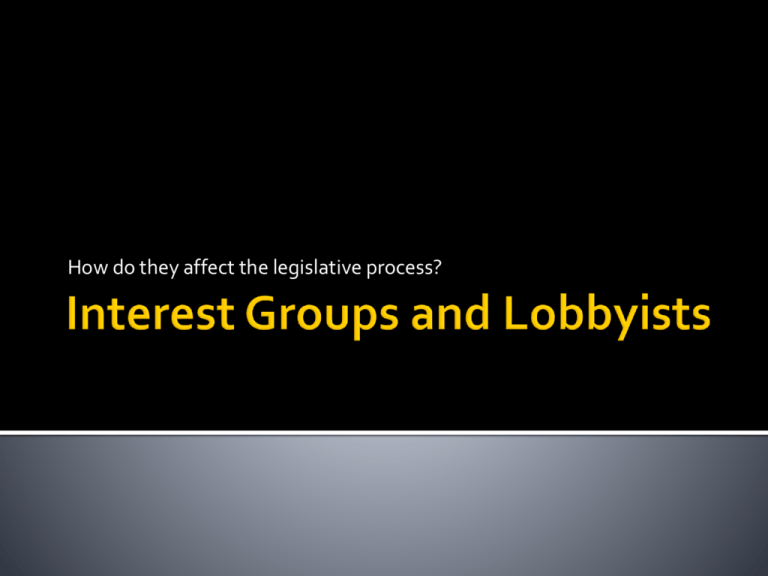
How do they affect the legislative process? Group of people seeking to influence the goals of government affecting every aspect of life. Sometimes called ‘special interest groups’, ‘leagues’, ‘unions’, ‘advocacy groups’, etc. Stimulate interest and make people aware Represent the members of their group wherever they live Provide useful, specified, and detailed information to the government about issues Ways for people to participate in politics Add another level of checks and balances making sure government officials perform as they should Competition between them limits how far they will go to advance their own agenda Some interest groups have more influence than their size or importance warrants. It is hard to tell how many or who a group actually represents. Many do not represent the views of all the people for whom they claim to speak. Occasionally, groups use tactics that are inappropriate such as bribes, threats, etc. Person who works for the issues that benefit the interest group who hired them and against those issues that may harm them Are about 20,000 or more Congressional lobbyists They know the legislative procedures well, and many are former Congressmen. They have a large network of contacts that help out with information See that media items favorable to their cause reach important Congressmen Testify before legislative committees Use grass-roots (average voters) pressure to influence legislation – ex. emails, letters, phone calls, etc. Keep track of how Congressmen vote on issues important to their interest group Draft legislation, write speeches, etc. Federal Regulations of Lobbying Act of 1946 – required lobbyists to register with the clerk of the House and the secretary of the Senate Lobbying Disclosure Act of 1995 – register and provide description of your activities; submit semi-annual reports of their lobbying activities
